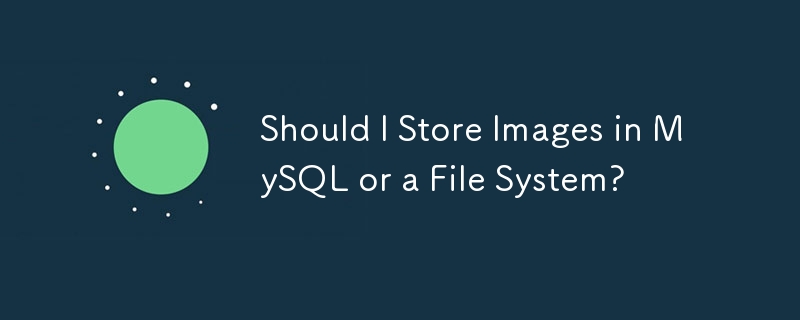

MySQL and Image Storage: An Alternative Approach
Storing images in databases has often been a point of debate among developers. While MySQL technically allows such storage, the practice is generally discouraged for several reasons.
MySQL, as a relational database management system, is designed to handle structured data. Images, on the other hand, are large, unstructured, and can occupy significant space. Storing images in MySQL can put unnecessary strain on database resources and the network connecting the database and web server.
The preferred approach is to store images in a file system and maintain references to them in the database. This allows for easier management and scalability, as images can be easily relocated or removed without affecting database records.
Consider the following advantages of storing images in a file system:
If for specific reasons you still need to store images in the database, there are other options to consider. Alternatively, you could explore using a NoSQL database, such as MongoDB, which is more suited for handling unstructured data like images. However, this also requires specialized handling and may not be the best choice for all scenarios.
The above is the detailed content of Should I Store Images in MySQL or a File System?. For more information, please follow other related articles on the PHP Chinese website!
 border-collapse
border-collapse
 What are the main differences between linux and windows
What are the main differences between linux and windows
 The difference between static web pages and dynamic web pages
The difference between static web pages and dynamic web pages
 Tutorial on merging multiple words into one word
Tutorial on merging multiple words into one word
 The role of c++this pointer
The role of c++this pointer
 How to close port 445 in xp
How to close port 445 in xp
 How to install pycharm
How to install pycharm
 How to open Windows 7 Explorer
How to open Windows 7 Explorer
 Google earth cannot connect to the server solution
Google earth cannot connect to the server solution




